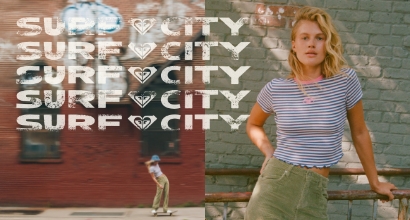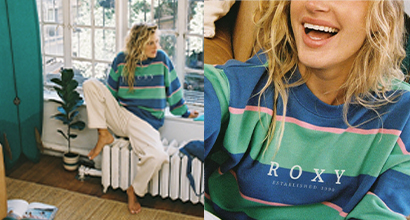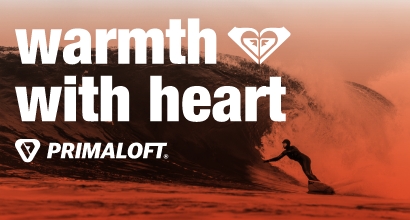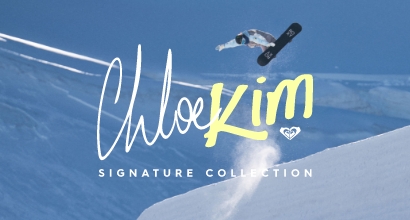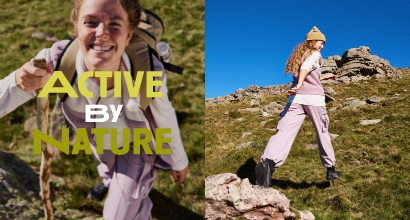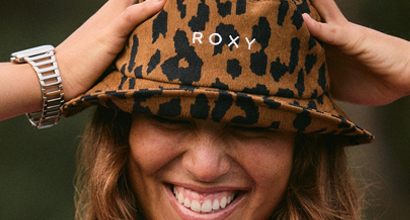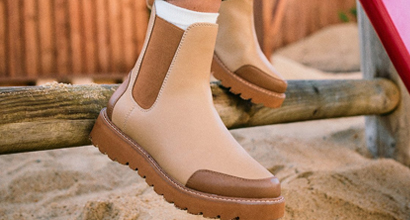Your Comprehensive Guide on Types of Skirts
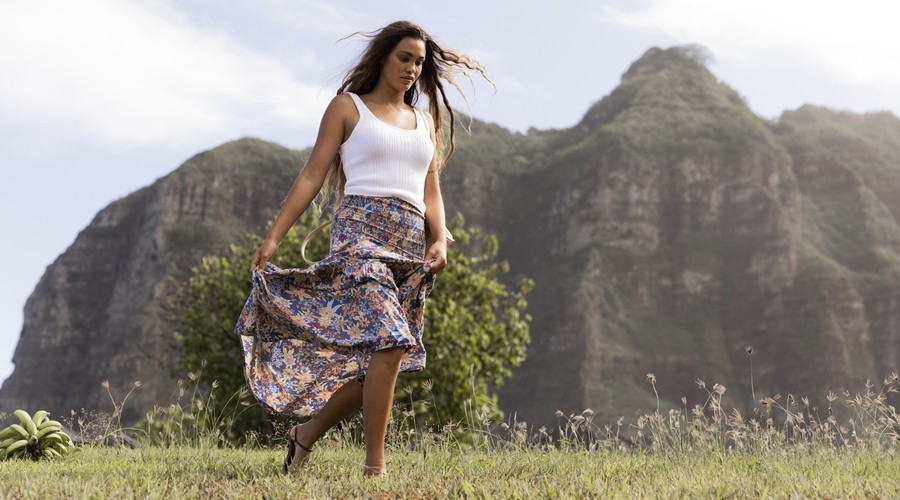
Skirts are a versatile choice for any wardrobe. In their most simple form, a waistband and draping fabric – they range in length, flare, and fit. There are countless possibilities as to fabrics, layers and volume. With so many choices, you may not know where to begin, so here is an in-depth guide to different types of skirts.
Women’s Skirt Types by Length
We categorize skirts into three broad groups – mini, midi, and maxi lengths.
Mini Skirts
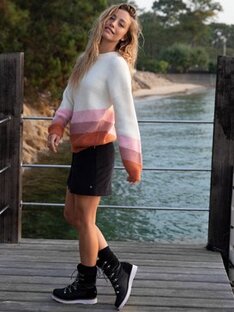
Any skirt that ends above the knee is described as a mini skirt. Cut to mid-thigh, this style gained popularity in the ‘60s and celebrated the liberation of women’s fashion.
A mini skirt is perfect for showing off legs and giving footwear a moment to stand out. They allow a full range of motion and can balance out oversized or structured tops with less volume below the waist.
Midi Skirts
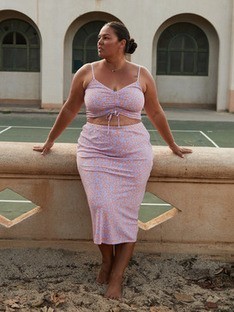
Midi skirts are hemmed to mid-calf and are sometimes known as tea-length. Women began wearing midis day-to-day around the ‘30s and ‘40s. Today, midis come in a variety of styles, which can create diverse silhouettes and fit many aesthetics.
Maxi Skirts
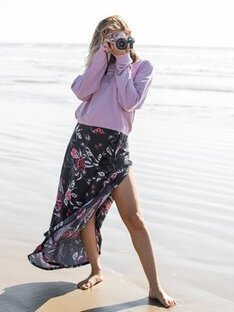
Maxi-length skirts are the longest, reaching the ankles or just grazing the ground. Long skirts offer the benefit of full-leg coverage, which is ideal for transitional weather or day-to-night outfits – they feel breezy when it’s warm and cosy when temperatures drop. Maxis produce a leg-lengthening effect that can be dressed up with accessories and shoes or kept casual and breezy.
Types of Skirt Silhouettes
Skirt shapes and styling can produce many different silhouettes that can be paired with any top in your closet.
A-Line
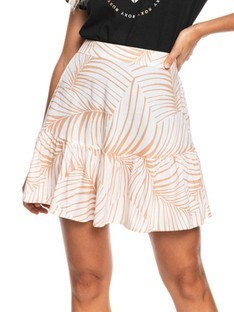
A skirt fitted at the waist that flares out to resemble the capital letter A. The A-line shape is classic and universally flattering. High-rise A-line skirts accentuate the smallest part of the waist and fit comfortably. You can find an A-line skirt in any style, from workwear and activewear to beach cover-ups and casual options.
Straight
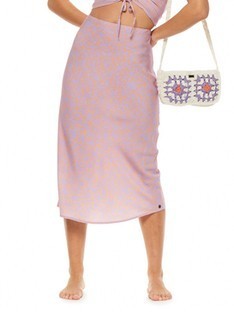
This type of skirt falls in a straight line from the hips to the hem. Most straight skirts are longer, with just below-the-knee to midi length being the most popular lengths. Maxi straight skirts often feature a slit for better movement. Wearing a straight skirt can elongate your silhouette. Cargo skirts, silky midis, and beach skirts are typical favourites.
Asymmetrical
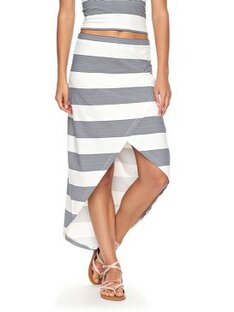
Asymmetrical refers to any non-standard or freeform silhouette. High-low hemlines where the front is hemmed shorter than the back are a popular choice and add individuality to any outfit. The difference between the back and front can vary from minimal to exaggerated. There is also the handkerchief hemline which resembles lots of draping strips of fabric, giving a unique fluid effect. Asymmetrical skirts can add a touch of originality to your wardrobe.
Pencil
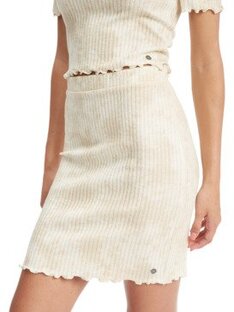
The pencil skirt tapers inwards from the hips to the hemline, providing a fitted silhouette. This slim cut allows for definition and shapeliness that can be incorporated into modest or playful outfits. They usually range from 2 inches above the knee to around midi length.
Layered/Tiered
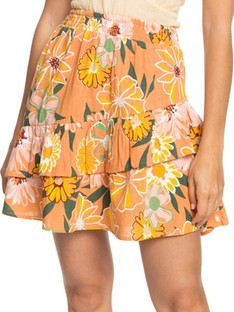
Layered and tiered skirts are a fun opportunity for dynamic silhouettes. These skirts feature different sections or layers of fabric usually gathered or smocked for more flare. Layers either drape freely or are attached in tiers. They’re favoured for casual wear and parties or occasions.
Tulip
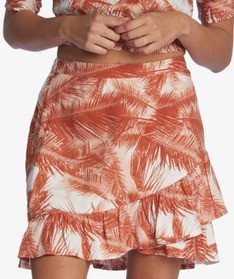
A tulip skirt has rounded sides that overlap to resemble upside-down tulip petals – like a wrap skirt but with a continuous waistline. Some tulip skirts can create the high-low effect or leg split effect depending on how they’re designed. The atypical hemline adds a playful twist to outfits while flattering the hips.
Skater
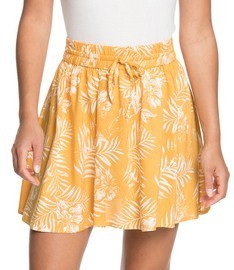
A skater skirt is also known as a circle skirt – when you lay them flat with the waistband in the middle the fabric is circle-shaped. These skirts are almost A-line but more relaxed. Sitting at your natural waist, skater skirts are breezy and easy to wear, both comfortable and versatile. Most circle skirts are shorter than midi length, with skater skirts usually designed at mini length.
Wrap
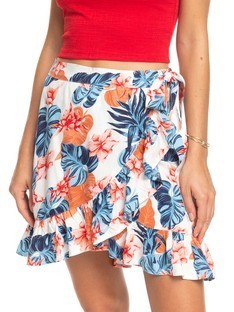
A wrap skirt is a fabric overlapping to a tie or button closure, adding a detailed flair and allowing for more adjustability. The hemline, length, and shape can vary. Wrap skirts look great as a casual option, but can be worked into more elevated outfits.
Types of Skirt Slits
Adding a slit to a skirt is perfect for both improving functionality and elevating aesthetics. Longer or more fitted skirts with a slit give you a fuller range of motion. They can also draw attention to different parts of the leg and statement sneakers or shoes.
Front Slit
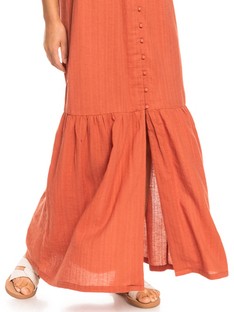
A front slit is a chic detail usually used to give skirts more movement – like in a denim straight skirt or a flowy cotton skirt. They also add a carefree element to drapey maxi skirts.
Side Slit
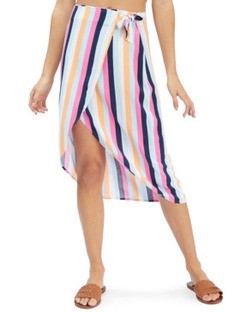
The side split introduces asymmetry while showing off the leg. The most versatile and popular option of skirt split, side splits can complement skirts of all lengths. The splits can range from minimal to deep. Small notched side slits in mini skirts add a fun detail. Wearing a long skirt with a deep side slit is a statement look.
Double Side Slits
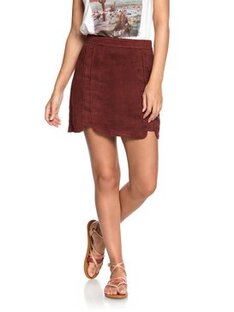
Double-sided slits add an unexpected twist to skirts. Minimal splits on a mini skirt add some fun, and exaggerated slits on longer skirts give a more daring vibe. Flowy maxis and beachwear are great options for rocking double-side slits too.
Back Slit
A back slit on a long skirt is a more subtle way to wear a slit. Positioned to the rear of the skirt, the back slit can be used to highlight your legs. Pencil skirts are often cut
Common Women's Skirt Fabrics
Cotton Blends
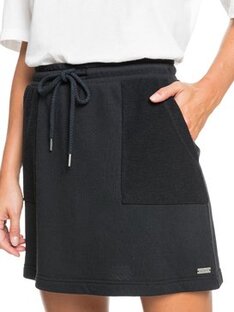
Cotton is a popular fabric because of how easy it is to care for, as well as its durability and versatility. Skirts made of 100% cotton are breathable and comfortable.
Many skirt fabrics blend another material with cotton to extend the life of the garment. Cotton-poly blends improve strength and longevity, as well as make skirts less prone to wrinkling. Polyester blended with cotton helps skirts maintain shape and raises their resistance to fading. Nylon adds strength and stretch. Blending cotton with linen creates a sturdy, lightweight, summery fabric that’s kind to the skin and environmentally gentle.
Corduroy
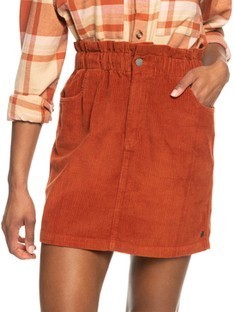
Corduroy is a cotton fabric weaved in a distinctive ridged pattern. Some corduroy skirts are a cotton-poly blend, while others are blended with wool. Cord fabric gives a casual, textural quality with a velvety finish. Skirts in this fabric are warm and cosy and look even better in natural hues like rust, chocolate, khaki, or camel. This makes them ideal for your fall/winter wardrobe. On the other hand, a lightweight cord is a great warmer-weather fabric for its breathability and looks great in brighter colours, vibrant tones, and pastels.
Denim
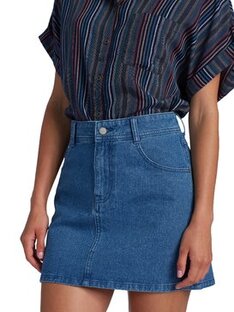
Denim is another cotton-based fabric that is timeless, durable and low maintenance. Denim skirts blended with Spandex offer a little more stretch. Like cord skirts, lightweight denim works well in warm weather. Skirts made from denim have the potential for all the different designs and details available with jeans – distressing, hardware, patchwork, and embroidery to name a few.
Rayon
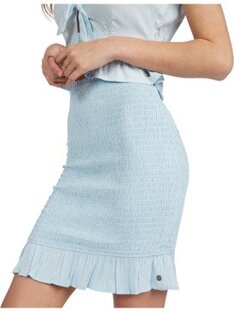
Rayon is a semi-synthetic fabric that can take on the look and feel of cotton, wool, or silk – so different rayon skirts feel and behave differently. This fabric is usually blended with others that improve its strength and lifespan. Viscose rayon is both stronger and softer to the touch than traditional rayon.
The most important thing about wearing a skirt is to feel comfortable in your skin. When you consider all of your fabric, silhouette, and style choices, you can show off your favourite features and add fun, new elements to your wardrobe.
Related Guides
Beach Dresses & Cover-Ups Guide
